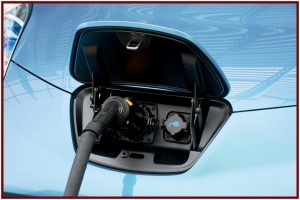In the ongoing tale of green politics versus the fiscal reality of huge government deficits, a new survey out of Great Britain reveals the potential business perils of on-again/off-again interventions in the marketplace.
Great Britain has been particularly lavish in providing EV subsidies of as much as 25% for businesses that purchase plug-in hybrid or Electric Vehicles -EVs – up to a limit of GBP 5,000 ($8,000).
Britain’s budget deficit is now about 11% of it gross domestic production this year, depending on how much its economy shrinks. Think of it as Greece in the colder Atlantic Ocean. The conservative government wants to trim the deficit to zero in five years. This means tax increases and drastic cuts and/or freezes in most spending areas, some of which were put in place last year. More are on the way.
The EV subsidies as a result are vulnerable. And EVs or plug-in hybrids without taxpayer support are not cost competitive in a free market.
This British EV subsidy runs through March of 2012, and applies to cars with carbon dioxide tailpipe emissions of less than 75g/km. EVs must have a minimum range of 70 miles; plug-in hybrids must have a minimum electric range 10 miles. This issue pits fiscal conservatives against environmentalists, with special interest or pressure groups angling for advantage.
The British drama will likely be replayed in the U.S. this year for the same reasons. Nuances of policy debates are likely lost on taxpayers who fear for their financial futures, and politicians who pander to short term fears.
A poll by Lex Autolease – the UK’s largest provider of company cars – reveals that almost half of financial directors (47%) would not pursue their company’s interest in electric vehicles, or plug-in hybrids, if the subsidy were removed.
This, arguably, unwelcome development comes as virtually all automakers are developing such vehicles – with the prodding and purse string of previous governments. Where the buyers will come from, and how the electricity is generated remain huge challenges, both financially and environmentally.
“We’ve published the actual cost of ownership figures in a new guide, which clearly shows that the subsidy is vital to ensuring these vehicles are cost competitive,” said Chris Chandler, principle consultant at Lex Autolease. “Without it, new EVs such as the Nissan Leaf can’t compete with the likes of a diesel Golf or even the Toyota Prius on cost.
“Businesses are sending out a clear signal that their interest in electric vehicles could be seriously diminished without the subsidy. Particularly if future changes mean the numbers no longer stack up,” concluded Chandler.


